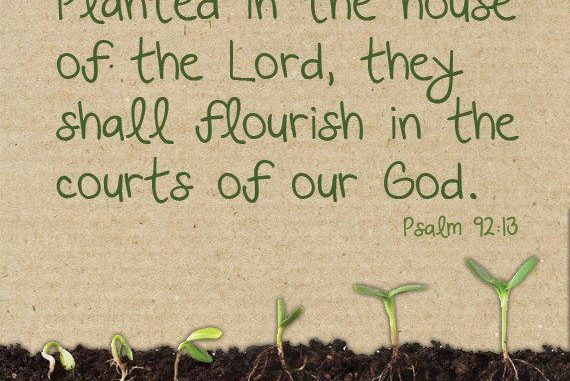
By Joel Brueseke
My parents live in the southeastern part of Missouri, and the six-hour drive to see them is filled with all kinds of scenery. We pass through a lot of ‘grape’ country – with lots of billboard signs for wineries and lots of grape farms. Lots and lots of grape farms. Did I mention all the grape farms that we see?
What’s so cool about making this drive at various times of the year is that we can see the grapes and grape vines in their various (and natural) stages of growth – from complete dormancy to full bloom, and everything in between. We see them during times of fertilizing and times of pruning, times of planting and times of harvesting. There are many stages that are necessary to produce the final product (the grape, raisin, wine, grape juice, etc).
I think it’s the same with our life in the Vine (Christ). Are we always being pruned? Are we always in full bloom? Is our “fruit” always being harvested? Can we sometimes just rest in the “dormant” times of our lives? Let me get more to the point with that last question. Why do we find it so hard to simply rest in and enjoy the fact that life in the Vine sometimes means natural periods of dormancy?Does the branch cease to be a part of the vine during the dormant times and during the times of fertilizing and pruning?
Modern church culture tends to put quite an emphasis on the end product – bearing fruit. We have such a “do, do, do” (“bear fruit, bear fruit, bear fruit”) attitude all the time!We feel guilty (or we make others feel guilty) if no tasty, juicy fruit is not only on the branch, but on the plate right here and right now. Don’t get me wrong – we all want to bear fruit! It’s a branch’s natural desire to bear the fruit of the vine from which it gets its life. But “natural” means a whole process is involved – not just an end result.
I once heard someone talking about a certain section of scripture from the Psalms:
“The righteous shall flourish like a palm tree, he shall grow like a cedar in Lebanon.
Those who are planted in the house of the LORD shall flourish in the courts of our God.
They shall still bear fruit in old age; They shall be fresh and flourishing.” (Ps 92:12-14)
Those who are planted in the house of the LORD shall flourish in the courts of our God.
They shall still bear fruit in old age; They shall be fresh and flourishing.” (Ps 92:12-14)
This person said that he had recently learned something about palm trees. He said that palm trees don’t bear fruit during their first ten years. The tree spends that time growing its roots deeper and deeper into the soil, becoming more and more firmly established in the fertile soil from which it draws nutrients and life. I was truly taken by this person’s beautiful description of the leaves and branches: If you look at a palm tree, it’s as if it’s standing there with its leaves and branches spread out, simply looking upward in a “Godward Gaze.”
There is praise in this picture, and no pressure. There is an expectation of great things to come, but no superficial or obligatory timeline in which these things must happen.There is true faith in this picture, assurance of things hoped for but not yet seen. There is true Life in this picture. Life that says, “rest in Me and you will bear fruit.”
The soil in this picture, to me, is a representation of grace. Grace is the fertile soil in which real life and godly nutrition for the Christian are found. It takes time for our roots to become firmly established in the fertile soil of grace. And notice that the above verse doesn’t say we’ll be like dandelions. Dandelions sure do grow to maturity quickly – but where’s the substance? The Psalmist says we’ll grow like a cedar in Lebanon – a tree that Ezekiel 31 describes this way: “fine branches… high stature… thick boughs… its height was exalted… its boughs were multiplied.” A cedar doesn’t exactly pop up overnight.
“Grow in the grace and knowledge of our Lord and Savior Jesus Christ.” This is a lifetime process. Don’t rush it.Don’t contaminate the soil with legalism. Enjoy the journey!
